168 – Mulligan Smith and The Crumble, Part 2 of 3
Welcome to Flash Pulp, episode one hundred and sixty-eight.
![]()
Tonight we present, Mulligan Smith and The Crumble, Part 2 of 3.
(Part 1 – Part 2 – Part 3)
[audio:http://traffic.libsyn.com/skinner/FlashPulp168.mp3]Download MP3
(RSS / iTunes)
This week’s episodes are brought to you by The Nutty Bites Podcast.
Flash Pulp is an experiment in broadcasting fresh pulp stories in the modern age – three to ten minutes of fiction brought to you Monday, Wednesday and Friday evenings.
Tonight, Mulligan Smith and his mountainous friend, Billy Winnipeg, pay an expected visit to a local giant.
Flash Pulp 168 – Mulligan Smith and The Crumble, Part 2 of 3
Written by J.R.D. Skinner
Art and Narration by Opopanax
and Audio produced by Jessica May
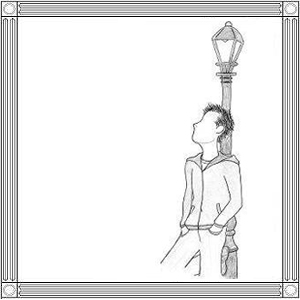 Three hours after the awkward discussion with his client, Mulligan Smith was standing in the building lobby of his only real lead, a behemoth of a fellow known locally as Ortez.
Three hours after the awkward discussion with his client, Mulligan Smith was standing in the building lobby of his only real lead, a behemoth of a fellow known locally as Ortez.
Before the agreed upon time, the PI had taken the opportunity to speak with some of his appointment’s neighbours, and the story given was consistent. Easily recognizable by his stature, the man suffered from a genetic condition which left him in generally ill health, and towering above those around him. He’d apparently claimed his place in the years preceding gentrification, and, despite rising rent costs, had managed to hold onto his first-floor apartment by subletting the extra space, and by accepting the occasional odd job to supplement his disability cheque.
Although an aging woman in a pink jacket, out walking her Tibetan Spaniel, had occupied Mulligan with a half-hour speech expounding on how Ortez was the last dregs of the old filth who’d lived there – and was also the herald of the area’s re-descent into depravity – the arrival of the police to wheel away his deceased roommate, only a few days earlier, was apparently the first serious legal trouble anyone could recall the colossus having been involved in.
Billy Winnipeg, Smith’s friend, and massive in his own right, seemed, to the private detective, excessively eager to meet the man.
Winnipeg’s thumb gave the call button a third push, and, finally, a tinny welcome drifted from the entrance’s speaker-box.
“Yeah, yeah, come in,” said the distant voice.
With a buzz, the lock popped open.
The hallway carpet and white stucco walls had seen little of the upgrades that had swept the surrounding city blocks, and, as he rapped at the gray apartment door, Mulligan guessed it hadn’t enjoyed a fresh coat of paint since before its renter had moved in.
“Hi,” said Smith, cheerily, as the opening swung wide. He hoped the upbeat tone might help sway the coming conversation in his favour.
Ortez nodded in response, and as his head bobbed, his vision was obstructed by the wall above the entry. Then he wheeled around, disappearing into the darkened interior.
Turning to direct Billy inward, Mulligan realized the Canadian’s face had taken on an odd glow, as if a mountaineer having just discovered a new, unfathomably large, peak in need of conquering.
“We aren’t here for a fight,” Smith told him. Winnipeg’s grin widened.
“Sure,” was his only response.
The windows had been covered with sheets and an international array of ratty flags, but the largest of the makeshift curtains was skewed by a foot, allowing a breeze to enter the living room.
In the corner, a television whispered secrets to itself.
“Thanks for giving me a chance to chat,” said Mulligan, wondering if he should risk sitting on the exposed stuffing of the couch.
“Yeah,” replied the hulk, continuing to stand.
Although Billy’s size often left Smith feeling short, Ortez gave him some idea of the life of a little person. He could already feel his neck stiffening.
“You’ve lived here ten years or so, right?” he asked.
“Yeah.”
“How long were you and your pal sharing the place?”
“Seven months.”
“Anything out of the ordinary the night he died?”
“No.” The examined scratched his ear.
“Did you know a Mrs. Brewer? Graciela?”
“No.”
“Well, you’ve heard about her in the papers or something though, right?”
“I think you should probably go,” Ortez replied.
“I think we should probably stay,” said Billy.
Mulligan tried to wave him off.
Like two snapping dogs, the pair approached each other, bumping chests before Smith could put himself between them – then, suddenly, he was glad he hadn’t.
It was a short fight.
Billy opened with a punch to the stomach which seemed to do little, then received a cuff to the ear in exchange. The northerner staggered under the weight of the meaty hand, but managed to lash out a boot at the giant’s protruding knee. The attached leg wobbled, and Ortez fell to the dark blue carpet.
“That’s my bad knee, dick!” said the toppled man.
“Sorry – but, really, you shouldn’t be so bloody ignorant,” Winnipeg replied.
The still-standing combatant wore an embarrassed grin at the sudden discovery of his opponent’s weakness.
“Dammit, man,” muttered Smith, pulling his companion away from the home’s rightful occupant.
Rubbing at his appendage, the collapsed resident appeared winded, but otherwise unhurt.
“I apologize for the idiot,” said Mulligan. “He has a different set of manners than most.”
“Nah, listen, I’m sorry, I was the one being rude. I’ve been getting a lot of attention over what happened, and I already land plenty of guff from people thinking I’m some sort of monster. Still, I’d like to see Allen’s death figured out – and there ain’t anyone who’s picked a fight with me in quite a while. You two obviously ain’t cops.”
He smiled as he said it.
Mulligan nodded. He considered attempting to assist Ortez to the couch, but he knew his efforts would be laughable against the man’s girth.
Instead, he told Billy to do it.
“Get over there and help, punchy.”
One goliath supported the other to the deflated cushions.
“Ha, well, now,” said the seated man “I’ll tell you what you want to hear, just don’t have your boy here rough me up again.”
He chuckled.
“You’re cool, right?” Ortez asked. Before they could respond, he reached into his pocket, retrieving a film canister which appeared the size of a thimble in his palm. Also pulling forth a twist of wooden tubing, he tapped the black container’s contents into the pipe’s bowl.
Within seconds, the room smelled of burnt cannabis.
“Uh, sorry,” repeated Winnipeg. “I mean, about your knee, and, uh, your dead buddy.”
“Not to sound harsh,” said Mulligan, pointedly ignoring his host’s indiscretion, “but do you have anyone lined up for his spot?”
“Nah, I’m doin’ OK for now.” replied the lounger. “Found a job behind the counter down at the coffee shop, or bakery, or whatever, two blocks over. I get to sit the whole shift, and they get to play circus a bit. I try not to do too much though – don’t want the cheques to stop flowing, you know. Still, I’m gettin’ plenty of hours since the couple who run it got pregnant.”
“Funny, now that you mention it,” said Smith, “a guy I know was telling me just earlier that the place wasn’t as reliable as it once was.”
“Ah, the customers are always complainin’. The boss usually, uh, stays busy, but, yeah, he’s a little flaky lately. I keep my mouth shut, don’t criticize, and, like I said, I ain’t had a lack of time on the clock – there’re also some side benefits to being a trusted employee.”
Ortez’s smirk widened as he took in another puff of smoke.
Flash Pulp is presented by http://skinner.fm, and is released under the Canadian Creative Commons Attribution-Noncommercial 2.5 License.
Text and audio commentaries can be sent to skinner@skinner.fm, or the voicemail line at (206) 338-2792 – but be aware that it may appear in the FlashCast.
– and thanks to you, for reading. If you enjoyed the story, tell your friends.
 [audio:http://traffic.libsyn.com/skinner/FlashCast020.mp3](
[audio:http://traffic.libsyn.com/skinner/FlashCast020.mp3](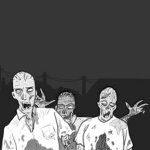
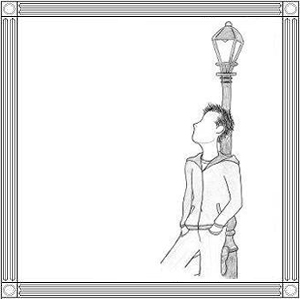 The only light in the Tercel came from the dash-panel’s green glow.
The only light in the Tercel came from the dash-panel’s green glow.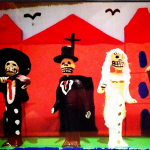 The two-story suburban home’s upper windows had shattered under the heat of the blaze, but those on the lower floor remained closed, except a single pane in the front living-room, which had been cracked against the vigour of the air conditioner, and now allowed an outlet for the black smoke column that blew outwards as if tainted-steam from a roiling kettle.
The two-story suburban home’s upper windows had shattered under the heat of the blaze, but those on the lower floor remained closed, except a single pane in the front living-room, which had been cracked against the vigour of the air conditioner, and now allowed an outlet for the black smoke column that blew outwards as if tainted-steam from a roiling kettle.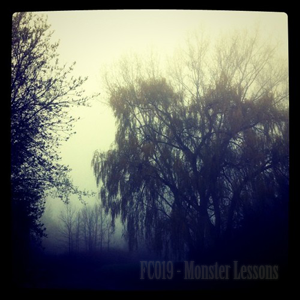 [audio:http://traffic.libsyn.com/skinner/FlashCast019.mp3](
[audio:http://traffic.libsyn.com/skinner/FlashCast019.mp3]( [audio:http://traffic.libsyn.com/skinner/FlashCast018.mp3](
[audio:http://traffic.libsyn.com/skinner/FlashCast018.mp3](